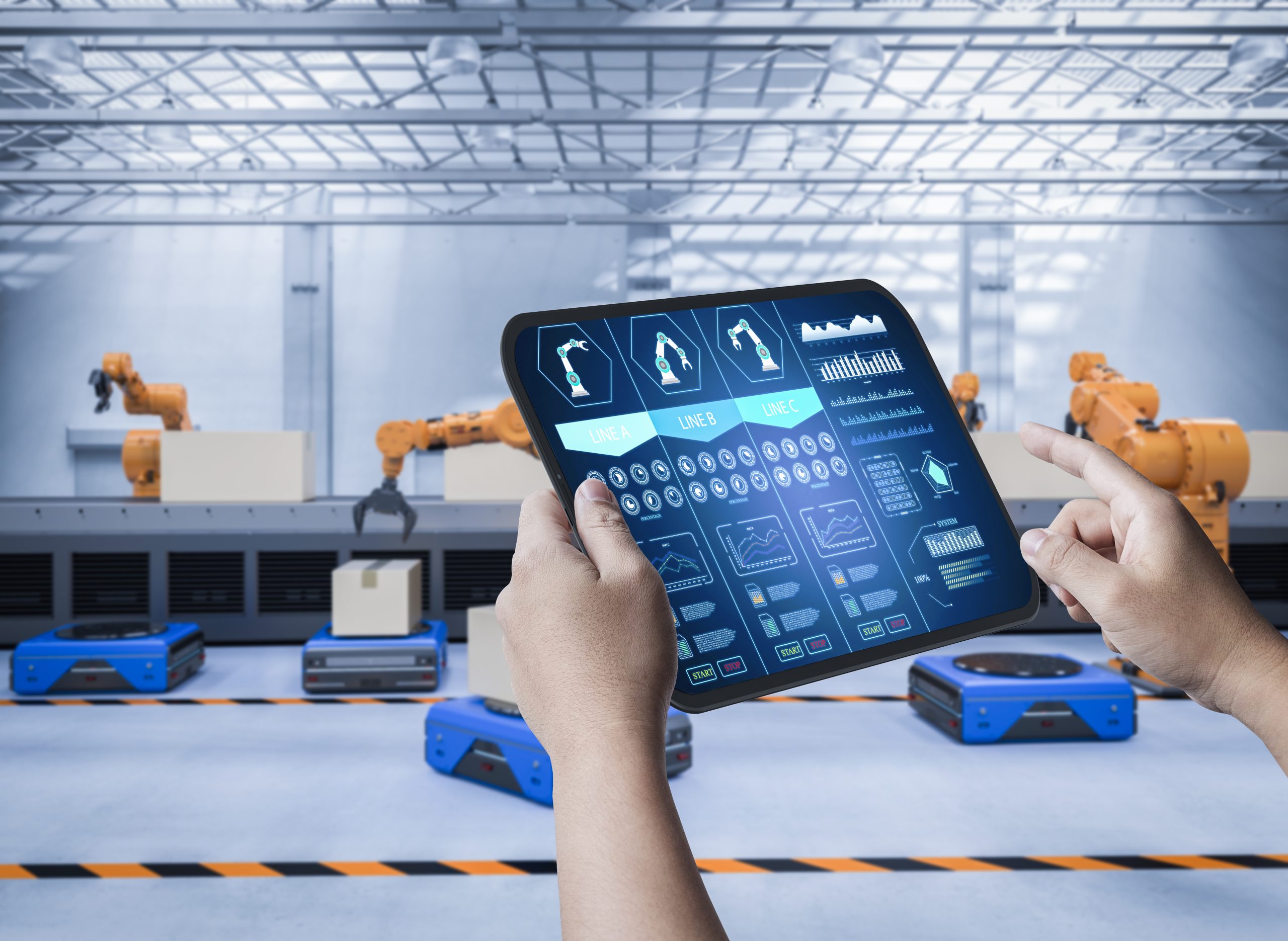
- By qematicadmin
Factory automation is no longer a futuristic concept reserved for large-scale enterprises. Today, it is an essential driver of productivity, efficiency, and competitiveness across industries worldwide. From automotive plants and electronics manufacturers to food processing and pharmaceuticals, businesses are embracing automation technologies to meet increasing demand, maintain consistent quality, and reduce operational costs.
In this blog, we explore the top benefits of factory automation for modern industries, highlighting how it is reshaping manufacturing and creating value for businesses of all sizes.
1. Enhanced Productivity and Efficiency
One of the most significant benefits of factory automation is the dramatic improvement in productivity. Automated systems can run around the clock without fatigue, unlike human workers who require breaks, shifts, and rest.
Machines can perform repetitive tasks faster and more accurately.
Automated production lines reduce downtime and increase output levels.
Real-time monitoring systems ensure that inefficiencies are detected and resolved quickly.
For industries facing high market demand, automation allows scaling production without compromising quality or overburdening staff.
2. Improved Quality and Consistency
In manufacturing, maintaining product quality is critical to customer satisfaction and brand reputation. Human error, even when minimized, can still lead to defects or inconsistencies. Automation addresses this challenge by ensuring:
Precise and repeatable processes.
Consistent adherence to specifications.
Automated quality checks that detect flaws in real time.
For instance, in the automotive and electronics industries, where precision is crucial, automation ensures every product meets exacting standards without deviation.
3. Cost Savings Over Time
Although the initial investment in factory automation may appear high, the long-term cost benefits are undeniable. Automation reduces operational costs by:
Lowering labor expenses for repetitive tasks.
Minimizing waste due to improved accuracy and consistency.
Decreasing downtime with predictive maintenance and efficient workflows.
Many companies report a rapid return on investment (ROI) once automation is fully implemented, as increased productivity and reduced errors quickly balance out the upfront costs.
4. Enhanced Worker Safety
Factories often involve high-risk environments with machinery, hazardous materials, and repetitive tasks. Automation improves workplace safety by taking over dangerous or monotonous jobs.
Examples include:
Robots handling heavy lifting and hazardous substances.
Automated systems operating in extreme temperatures or toxic environments.
Reducing risks of accidents caused by human fatigue or repetitive strain.
This shift allows human workers to focus on supervisory, creative, or technical roles while keeping them safe from unnecessary risks.
5. Flexibility and Scalability
Modern automation systems are highly adaptable, making them valuable for industries that need to respond quickly to market changes.
Robotics and automated machinery can be reprogrammed for new product lines.
Modular automation systems allow scaling production up or down easily.
Digital monitoring provides insights to help adjust operations in real time.
This flexibility is particularly beneficial in industries like food manufacturing or consumer electronics, where product cycles are short and demand changes rapidly.
6. Data-Driven Insights and Better Decision-Making
Factory automation is closely linked with digital technologies such as sensors, IoT devices, and advanced analytics. These technologies generate valuable data that managers can use for informed decision-making.
Benefits include:
Real-time performance monitoring.
Predictive maintenance to prevent costly breakdowns.
Data-driven optimization of resource usage and energy consumption.
Data insights not only improve operational efficiency but also help industries align with sustainability goals by reducing energy waste and emissions.
7. Greater Competitiveness in Global Markets
In today’s competitive global economy, businesses that fail to modernize risk being left behind. Factory automation ensures companies remain competitive by:
Lowering costs while increasing output.
Meeting international quality and safety standards.
Delivering products faster to meet customer demand.
For exporters, automation helps maintain a competitive edge by ensuring products can be delivered reliably, consistently, and at lower costs compared to competitors relying on traditional methods.
8. Workforce Transformation and Upskilling
While automation replaces repetitive manual tasks, it also creates opportunities for workforce transformation. Employees are freed from monotonous roles and can take on higher-value responsibilities such as:
Managing and maintaining automated systems.
Data analysis and process optimization.
Innovation and product development.
This transition fosters a culture of continuous learning and upskilling, enabling workers to thrive in a technology-driven environment.
9. Environmental and Sustainability Benefits
Sustainability is a growing priority for industries worldwide. Factory automation contributes to eco-friendly practices by:
Reducing material waste through precise production.
Optimizing energy usage with smart systems.
Lowering emissions by minimizing inefficient processes.
By supporting green manufacturing, automation not only benefits the planet but also aligns businesses with customer expectations and regulatory requirements.
10. Future-Ready Manufacturing
Automation is not just about solving today’s challenges; it prepares industries for the future. With advancements in artificial intelligence (AI), machine learning, and the Internet of Things (IoT), factories are evolving into smart, interconnected ecosystems.
Future-ready benefits include:
Predictive analytics to forecast demand and optimize supply chains.
Fully integrated systems connecting design, production, and logistics.
AI-driven improvements that continuously enhance efficiency.
Companies investing in automation today position themselves to adapt seamlessly to technological advancements tomorrow.
Conclusion
Factory automation is no longer optional—it is a necessity for industries seeking to stay competitive, efficient, and sustainable in the modern era. The benefits range from enhanced productivity and cost savings to improved safety, quality, and global competitiveness. Moreover, automation paves the way for a smarter, data-driven, and environmentally responsible manufacturing future.
For businesses exploring automation, the key is to view it not just as a cost but as an investment in long-term growth and resilience. By embracing factory automation, industries can ensure they are well-prepared for the challenges and opportunities of tomorrow’s global economy.

